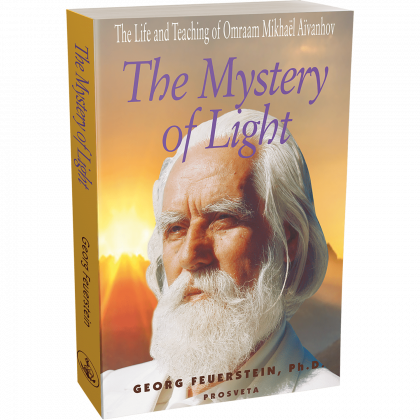Eco-Spirituality: We Are the World We Live in
For an ecological and spiritual renaissance
'The reciprocity of inner and outer life has of late been recognized by a small but growing segment within the ecology movement.
The work of philosopher Henryk Skolimowski1 and ecological thinker Charlene Spretnak2 is representative of this avant-garde group. They speak of “eco-spirituality”— the wedding of ecological and spiritual values in order to heal the planet and ourselves.
The great spiritual traditions of the world were created long before the onset of the environmental problems bedeviling our existence today. They were, by and large, focused on individual salvation, based on the ideal of world renunciation. Today, however, a new type of thinking and spirituality is emerging, which is in some respects radically different from the traditional viewpoints.
Eco-spirituality is based on the fact that we do not exist in isolation, but that life is always a cooperative process. Skolimowski characterized this innovative approach as being part of today’s “Ecological Renaissance.” This Renaissance, he explained, “celebrates life as part of the flowering of the universe, the human as an intrinsic part of the cosmic design, and the cosmos as home for man.”
The new spirituality, according to Skolimowski, must view the world as a sanctuary and instill in us reverence for life and the cosmos as a whole. For him, ecology is “reverence in action,” which bridges the apparent gulf between subject and object, mind and matter, human being and universe. The new ecology thus implies a distinct moral code. These words, uttered by a philosopher, are befitting of a sage. Skolimowski belongs indeed to the new species of philosopher-sages for whom philosophy is not semantic quibbling and wordplay but what it was originally: the love of wisdom. It is this kind of serious philosophical work that epitomizes the confluence that is occurring today between modern thought and the ancient sacred traditions.
It bespeaks of the new orientation to life, the new consciousness, that Aïvanhov not only heralded in his many talks but personally embodied.'
Georg Feuerstein
1. Henryk Skolimowski (1930-2018) was a Polish philosopher, considered to be the leading thinker in the field of eco-philosophy.
2. Charlene Spretnak (born January 30, 1946) is the author of nine books on cultural history, social criticism (including feminism and Green politics), art, and religion and spirituality. More @ www.charlenespretnak.com
'The reciprocity of inner and outer life has of late been recognized by a small but growing segment within the ecology movement.
The work of philosopher Henryk Skolimowski1 and ecological thinker Charlene Spretnak2 is representative of this avant-garde group. They speak of “eco-spirituality”— the wedding of ecological and spiritual values in order to heal the planet and ourselves.
The great spiritual traditions of the world were created long before the onset of the environmental problems bedeviling our existence today. They were, by and large, focused on individual salvation, based on the ideal of world renunciation.
Today, however, a new type of thinking and spirituality is emerging, which is in some respects radically different from the traditional viewpoints.
Eco-spirituality is based on the fact that we do not exist in isolation, but that life is always a cooperative process. Skolimowski characterized this innovative approach as being part of today’s “Ecological Renaissance.” This Renaissance, he explained, “celebrates life as part of the flowering of the universe, the human as an intrinsic part of the cosmic design, and the cosmos as home for man.”
The new spirituality, according to Skolimowski, must view the world as a sanctuary and instill in us reverence for life and the cosmos as a whole. For him, ecology is “reverence in action,” which bridges the apparent gulf between subject and object, mind and matter, human being and universe. The new ecology thus implies a distinct moral code. These words, uttered by a philosopher, are befitting of a sage. Skolimowski belongs indeed to the new species of philosopher-sages for whom philosophy is not semantic quibbling and wordplay but what it was originally: the love of wisdom.
It is this kind of serious philosophical work that epitomizes the confluence that is occurring today between modern thought and the ancient sacred traditions.
It bespeaks of the new orientation to life, the new consciousness, that Aïvanhov not only heralded in his many talks but personally embodied.'
Georg Feuerstein
1. Henryk Skolimowski (1930-2018) was a Polish philosopher, considered to be the leading thinker in the field of eco-philosophy.
2. Charlene Spretnak (born January 30, 1946) is the author of nine books on cultural history, social criticism (including feminism and Green politics), art, and religion and spirituality. More @ www.charlenespretnak.com



